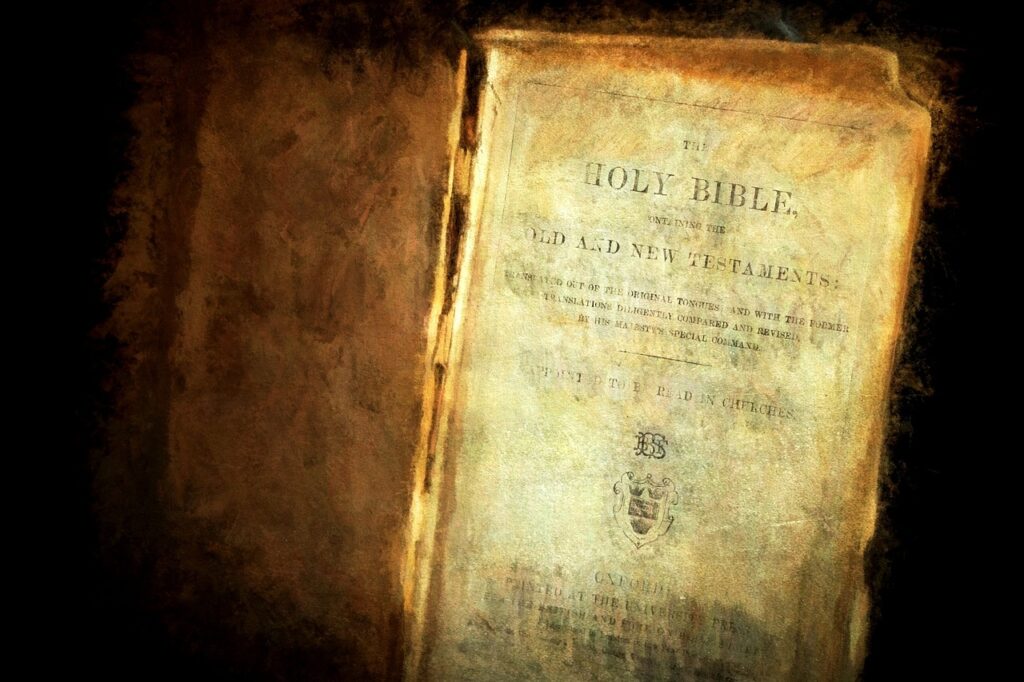Every generation seems to ask the same question: Is the Bible outdated?
We hear it from classrooms, podcasts, social media, and even from the quiet doubts within our own hearts. The question itself isn’t new, though it may feel modern. People have long debated whether God’s Word remains relevant in the moment they are living in. And yet, as I’ve grown in faith and watched the world change around me, I’ve come to realize something simple but profound: the Bible doesn’t age, people’s hearts do.
Today, many argue that the Bible should be viewed through a “modern lens.” Society encourages us to interpret Scripture in ways that fit current values, redefining right and wrong based on feelings, trends, and cultural shifts. On the surface, that seems harmless after all, times change, technology evolves, and people think differently than they did centuries ago. But beneath that reasoning lies a subtle danger.
When we start reshaping God’s truth to fit our comfort, we stop letting truth shape us. We trade eternal wisdom for temporary approval. It reminds me of what happened in the Garden of Eden, when the serpent whispered to Eve, “Did God really say?” That single question was enough to plant doubt in her heart. The same whisper still echoes in our culture today: “Did God really mean that?” or “Surely He doesn’t care about that anymore.”
However, the Word of God remains unchanged. The Bible was never meant to evolve with the world; it was meant to transform the world. What was true at the beginning remains true now.
When I read about the children of Israel, I see a mirror reflecting our modern condition. Over and over again, they turned from God to follow their own desires. They craved independence, thinking they knew better, and in doing so, they ended up enslaved, not always by chains, but by their own choices.
Yet, even in their rebellion, God never abandoned them. He allowed them to face the consequences of their sin, but His mercy always followed. Every time they repented and turned back to Him, He redeemed them. Their story is one of repeated failures met with repeated grace.
I often wonder how many times we, too, have been caught in that same cycle. We may not bow before golden calves, but we usually worship success, comfort, or the opinions of others. We build modern idols with our careers, relationships, or the desire for control. We chase happiness in all the wrong places, and before long, we find ourselves in bondage to anxiety, addiction, fear, or emptiness. Just like Israel, we need a Savior to rescue us from ourselves.
Slavery today may not look like it did in the days of Pharaoh, but it’s just as real. People are enslaved by depression, shame, materialism, and sin that promises freedom but delivers captivity.
Think about how many are trapped by comparison, endlessly scrolling through social media feeds trying to measure up. How many are bound by bitterness, unable to forgive, carrying wounds that only grow heavier over time? How many chase love through relationships that leave them emptier than before?
We live in a time of great advancement, yet also of deep spiritual poverty. Our chains are invisible, but their weight is undeniable. The good news is that the same God who set Israel free is still setting people free today. Jesus declared, “You will know the truth, and the truth will set you free.” The truth hasn’t changed, only our willingness to receive it has.
The Bible paints a vivid picture of the “last days,” describing people as lovers of themselves, lovers of pleasure rather than lovers of God. When I read those words, I can’t help but see our culture reflected in them. Self-obsession, pride, moral confusion, and spiritual apathy are everywhere.
We live in an era where truth is treated as relative, where the distinction between right and wrong is blurred, and where personal happiness often takes precedence over holiness. The Apostle Paul’s words to Timothy ring louder now than ever before: people will have “a form of godliness but deny its power.” Many claim to believe in God, but few allow Him to change their lives.
It’s sobering to realize that what the Bible predicted thousands of years ago is happening before our eyes. Yet even in that realization, there’s comfort. Nothing takes God by surprise. His Word is unfolding just as He said it would.
So, is the Bible outdated? Not at all. Humanity continues to repeat the same patterns of sin, pride, and rebellion, albeit in modern attire. Technology may advance, but the human heart remains the same. Every generation faces the same questions of purpose, identity, and morality that have been asked since the beginning of time.
What makes the Bible extraordinary is that it speaks to the unchanging nature of the human soul. It reveals who God is and who we are meant to be. It offers truth, correction, and hope in every age.
Jesus once said, “Heaven and earth will pass away, but My words will never pass away.” That means every promise, every warning, every prophecy, and every word of comfort still stands today. God’s Word doesn’t expire. It doesn’t lose relevance or power. It remains living and active, sharper than any two-edged sword, cutting through the confusion of the world and bringing clarity to the heart.
Perhaps the problem isn’t with the Bible, but instead with how we interpret it. Our modern world often measures truth by convenience rather than conviction. If something makes us uncomfortable, we dismiss it as outdated. But the Bible was never meant to make us comfortable; it was meant to make us holy.
When I struggle with parts of Scripture, I’ve learned not to ask, “How can I change this to fit my life?” but rather, “How can I change my life to fit God’s truth?” That’s where transformation begins.
If we’re honest, the Bible challenges every generation because it calls us to die to ourselves, to our pride, our opinions, and our selfish desires. That message will never be “in style,” but it will always be necessary. God’s Word exposes what’s broken in us, but it also shows us the path to healing.
When I open the pages of Scripture, I don’t see an ancient relic. I see a living conversation. The same God who spoke to Moses in the desert speaks to me in the quiet moments of prayer. The same grace that restored David after his failure continues to restore people today. The same truth that guided Paul through persecution still strengthens believers facing trials around the world.
Every story, every verse, every command carries the heartbeat of a God who has not changed. His Word isn’t just a record of what He said, it’s a revelation of who He is. And who He is will never grow old.
So maybe the question isn’t, “Is the Bible outdated?” Perhaps the real question is, “Have we stopped listening?”
If we find the Bible irrelevant, it’s not because God’s Word has faded; it’s because we’ve drifted. When our minds are saturated with the noise of culture, the still, small voice of truth can seem distant. But when we quiet ourselves and open the pages of Scripture, we find that God has been speaking all along.
He calls us to return to repentance, to humility, to a renewed reverence for His Word. In the same way He called Israel back after every season of rebellion, He calls us today. And just like before, His response to a repentant heart is mercy and restoration.
In the end, the Bible is not outdated; it is eternal. Its truths are as relevant now as they were the day they were written. The world will continue to change, cultures will rise and fall, opinions will shift like the wind, but the Word of God stands firm.
When we anchor our lives in it, we find stability in the midst of chaos, light in the middle of darkness, and truth in a world of confusion. Every generation that tries to silence it ends up proving its power.
Maybe what needs renewing isn’t the Bible, it’s us.
Perhaps what needs updating isn’t God’s Word, but our hearts.
No matter how advanced our world becomes, the most profound need of every soul remains the same: to know the God who created us, loves us, and still speaks through His unchanging Word.
JB Andrews

